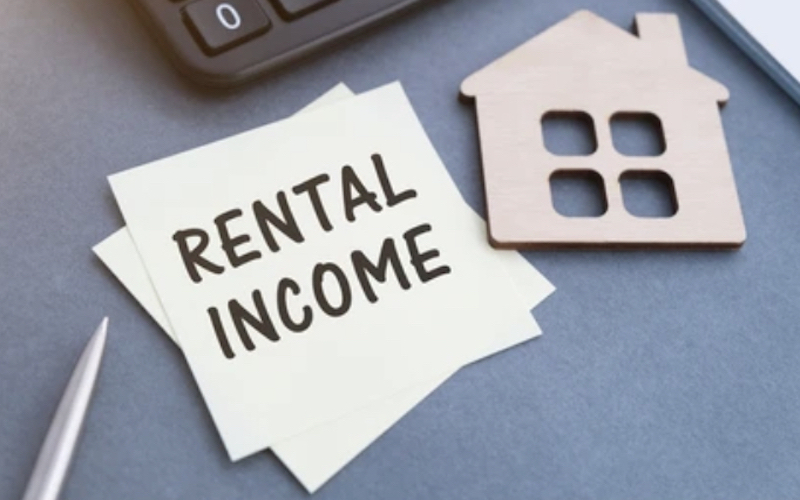
A Comprehensive Guide to Property Rental Taxes in Thailand – As a property owner in Thailand, it’s crucial to have a thorough understanding of the tax obligations and regulations surrounding your rental income. Thailand’s property rental tax system can be complex, with various types of taxes, deductions, and reporting requirements that you need to navigate. In this comprehensive guide, we’ll dive deep into the world of Thailand property rental taxes, equipping you with the knowledge and tools you need to manage your tax responsibilities effectively.
Types of Property Rental Taxes in Thailand
In Thailand, there are two primary types of property rental taxes that you, as a landlord, need to be aware of:
- Personal Income Tax (PIT): This tax applies to the rental income you earn from your property. The tax rate varies depending on your total taxable income and personal circumstances.
- Withholding Tax: This tax is deducted from the rental payments made to you by your tenants. The withholding tax rate is typically 5% of the gross rental income.
Tax Obligations for Owners in Thailand
As a property owner in Thailand, you have certain tax obligations that you must fulfill when renting out our property. These include:
- Registering your rental property with the Revenue Department
- Maintaining accurate records of your rental income and expenses
- Calculating and paying the appropriate taxes on your rental income
- Issuing receipts to your tenants for their rental payments
- Reporting your rental income and tax payments to the authorities
Failure to comply with these obligations can result in penalties and legal consequences, so it’s essential to understand and fulfill your responsibilities as a landlord in Thailand.
Rental Income Tax Rates in Thailand
The personal income tax (PIT) rate for rental income in Thailand is progressive, meaning the tax rate increases as your taxable income rises. The current PIT rates for rental income are:
| Taxable Income Range | Tax Rate |
|---|---|
| Up to ฿150,000 | 0% |
| ฿150,001 – ฿300,000 | 5% |
| ฿300,001 – ฿500,000 | 10% |
| ฿500,001 – ฿750,000 | 15% |
| ฿750,001 – ฿1,000,000 | 20% |
| ฿1,000,001 – ฿2,000,000 | 25% |
| Over ฿2,000,000 | 30% |
It’s important to note that the tax rates are subject to change, so it’s always a good idea to stay up-to-date with the latest regulations.
Tax Deductions and Exemptions when Renting out your Property
To help reduce your tax liability, there are several deductions and exemptions available for property rental taxes in Thailand:
- Standard Deduction: You can claim a standard deduction of 30% of your gross rental income, which covers your expenses such as maintenance, repairs, and utilities.
- Mortgage Interest Deduction: If you have a mortgage on your rental property, you can deduct the interest paid on the loan.
- Depreciation Deduction: You can claim a deduction for the depreciation of your rental property, which is calculated based on the property’s useful life and value.
- Personal Exemptions: Depending on your personal circumstances, you may be eligible for various personal exemptions that can further reduce your taxable income.
Maximizing these deductions and exemptions can help you minimize your overall tax burden on your rental income.
Reporting and Filing Requirements for Property Rental Taxes in Thailand – Landlords in Thailand are required to report and file their rental income taxes on an annual basis. The specific reporting and filing requirements include:
- Annual Tax Return: You must file an annual tax return (PND 90 form) with the Revenue Department, which includes your rental income, expenses, and tax calculations.
- Withholding Tax Reporting: You must report and pay the withholding tax (5% of the gross rental income) to the Revenue Department on a monthly basis.
- Receipts and Records: You must maintain detailed records of your rental income, expenses, and tax payments, and provide receipts to your tenants for their rental payments.
Failure to comply with these reporting and filing requirements can result in penalties and legal consequences, so it’s essential to stay on top of your tax obligations as a landlord in Thailand.
Penalties for Non-Compliance with Property Rental Tax Regulations in Thailand – If you fail to comply with the property rental tax regulations in Thailand, you may face severe penalties, including:
- Late Filing Penalties: If you file your tax return or pay your taxes after the due date, you may be subject to late filing penalties, which can be up to 200% of the tax owed.
- Underpayment Penalties: If you underpay your taxes, you may be charged an additional 1.5% penalty per month on the outstanding amount.
- Criminal Penalties: In some cases, non-compliance with property rental tax regulations can result in criminal charges, such as tax evasion, which can carry fines and even imprisonment.
To avoid these penalties and legal consequences, it’s crucial to understand and fulfill your tax obligations as a landlord in Thailand.
Tips for Minimizing Property Rental Taxes in Thailand – While you can’t avoid paying taxes altogether, there are several strategies you can employ to minimize your property rental tax burden in Thailand:
- Maximize Deductions: Ensure that you claim all eligible deductions, such as the standard deduction, mortgage interest deduction, and depreciation deduction, to reduce your taxable income.
- Maintain Accurate Records: Keep detailed records of your rental income, expenses, and tax payments to support your tax filings and avoid discrepancies.
- Consider Property Ownership Structure: Explore alternative property ownership structures, such as setting up a company or trust, which may offer tax advantages.
- Consult with a Tax Professional: Hire a tax accountant or advisor who specializes in property rental taxes in Thailand to ensure you’re complying with the regulations and maximizing your tax savings.
By implementing these strategies, you can effectively manage your property rental tax obligations and minimize your overall tax burden.
Hiring a Tax Professional for Property Rental Tax Matters in Thailand – Navigating the complex world of property rental taxes in Thailand can be daunting, especially for those who are new to the process or have a large rental portfolio. Hiring a tax professional, such as an accountant or tax advisor, can be a wise investment to ensure you’re fulfilling your tax obligations correctly and maximizing your tax savings.
A tax professional can provide valuable services, such as:
- Registering your rental property with the Revenue Department
- Calculating your rental income tax liability
- Identifying and claiming eligible deductions and exemptions
- Preparing and filing your annual tax returns
- Advising on tax-efficient property ownership structures
- Representing you in the event of a tax audit or dispute
By working with a tax professional, you can have peace of mind knowing that your property rental tax matters are being handled by an expert, allowing you to focus on managing your rental properties effectively.
Conclusion: Key Takeaways for Understanding Thailand Property Rental Taxes
In conclusion, understanding the complexities of Thailand property rental taxes is crucial for landlords to ensure compliance and minimize their tax burden. Key takeaways from this comprehensive guide include:
- Thailand has two primary property rental taxes: personal income tax (PIT) and withholding tax.
- Property owners have specific tax obligations, such as registration, record-keeping, and tax reporting.
- Rental income tax rates in Thailand are progressive, ranging from 0% to 30% depending on your taxable income.
- There are various deductions and exemptions available to help reduce your tax liability.
- Failure to comply with property rental tax regulations can result in severe penalties, including late filing fees, underpayment penalties, and even criminal charges.
- Strategies such as maximizing deductions, maintaining accurate records, and consulting with a tax professional can help you minimize your property rental taxes in Thailand.
By understanding and proactively addressing your property rental tax obligations in Thailand, you can ensure that your rental business operates efficiently and remains compliant with the relevant regulations.
If you’re a landlord in Thailand, it’s essential to stay informed about the latest property rental tax regulations and strategies to minimize your tax burden. Consider consulting with a tax professional who specializes in property rental taxes in Thailand to ensure you’re fulfilling your obligations and maximizing your tax savings. Contact us today to learn more about how we can assist you with your property rental tax matters.





